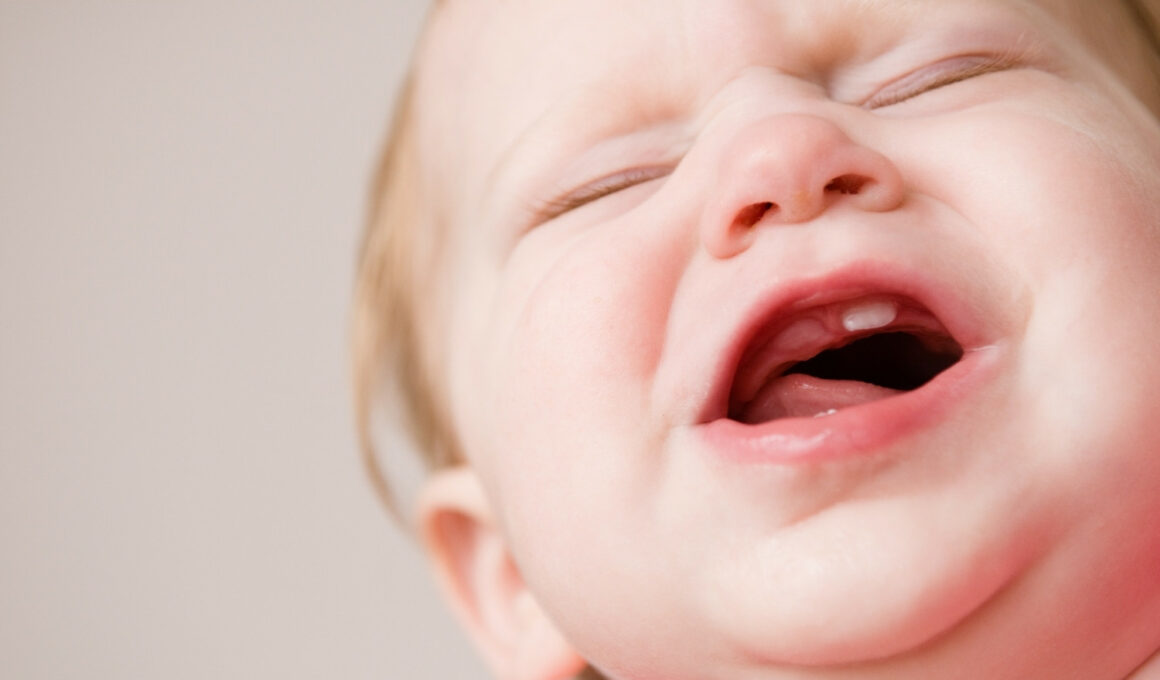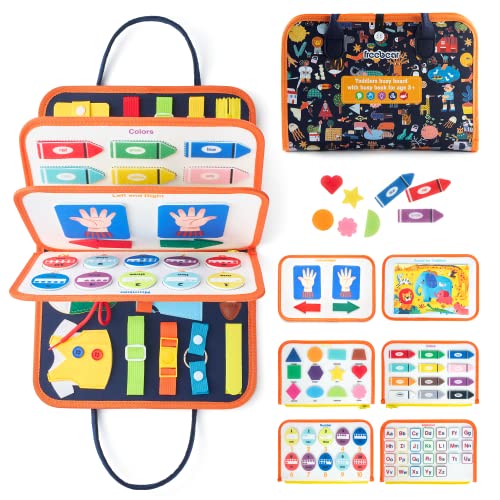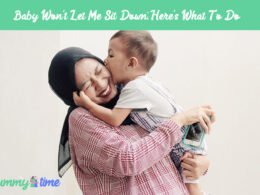In This Article Show
Teething is like an elating development and every parent looks forward to seeing the little white crown of a sprouting tooth. However, nothing prepares parents for the issues that accompany teething. Teething although a sign of growth in babies that gladdens the heart, can also be a bittersweet experience for both the baby and caregivers.
The appropriate age at which teething starts varies from baby to baby but it is expected for a tooth to start growing from as early as 2 months to 6 months. As we all know as parents, teething comes with various symptoms and can cause some health difficulties to babies. But can it be the major culprit for ear infections in babies?
No, teething can not cause ear infections in babies. It is typical for babies to rub and scratch their ears more often than usual when teething but it doesn’t necessarily mean that babies’ ear infection is being triggered by the recent development.
Make sure to speak to a healthcare provider to determine the cause, and provide effective remedies to the infection. For other symptoms of teething, it is important that parents find a way to provide calm to the situation.
Want to know the cause of the ear infection and how to alleviate the issue? This article has got you covered. We will also uncover the common signs and symptoms of teething as well as all other important information you need to know about this topic. Do stick around.
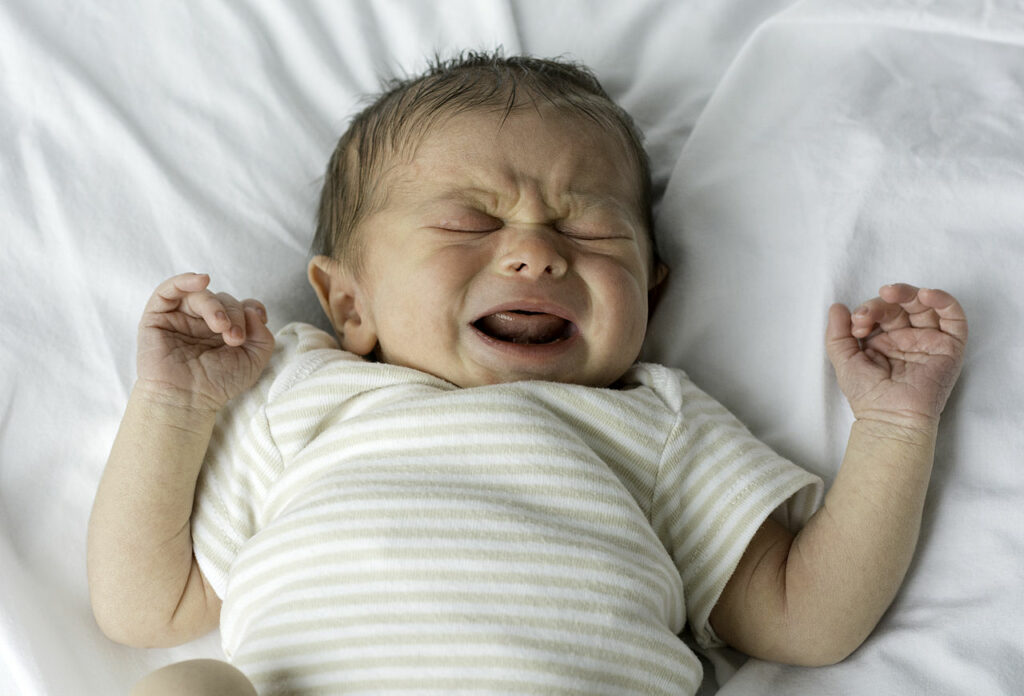
Understanding Teething In Babies
Teething needs to be understood properly in order to make the best of the situation. In many cases, babies tooth or teeth may start erupting as early as two months and 3 months, however, it is typical for babies to start teething between 2 months to 6 months.
Great deals to snatch for your little ones 🎉
Their teeth continue to grow throughout the toddler stage of their life. Depending on your baby, teething can be a painful experience as it shows with a couple of signs and they include;
- Drooling
- Fussiness and crying for no particular reason.
- Swollen gums.
- Loose stools or diarrhea.
- Itchiness around the gums.
- Increased temperature or fever.
- Scratching or rubbing the ear constantly.
- Running nose.
There are several ways to help your baby out when they show some of these symptoms, for instance, you can provide your baby with teethers to help ease the itch they feel in their gum. You can also provide your baby with lots of teething toys they can easily chew on.
Although babies may find themselves scratching their ears excessively, parents may mistake this as a sign of an ear infection and probably assume that teething has caused an ear infection to raise its ugly head.
Be assured that, no study proves that teething can cause ear infections in babies. Also, make sure to consult with a pediatrician to ascertain that your baby is suffering from an ear infection and follow instructions on what to do about it.
How To Know Your Baby Has An Ear Infection
The constant rubbing and pulling of the ear during the teeth stage can deceive parents into thinking that their baby has an infection in the ears as it is common in babies.
However, babies always keep parents guessing what might be wrong especially since babies are mostly great at babbling rather than talking. So it is typical to wonder what the signs of ear infection are;
- Constant tugging and pulling of ears.
- Lack of sleep.
- Signs of sensitivities around the ear.
- Crying, crankiness, or being extra fussy.
- Unusual fluid in the ear.
- Temperature rise and fever.
- Difficulty in hearing or responding to sensory cues
If your baby is teething and you notice these signs of an ear infection, keep in mind that teething is not the cause of the health issue. However, it is important to speak to a pediatrician about the best course of action to take for the health concerns of your baby.
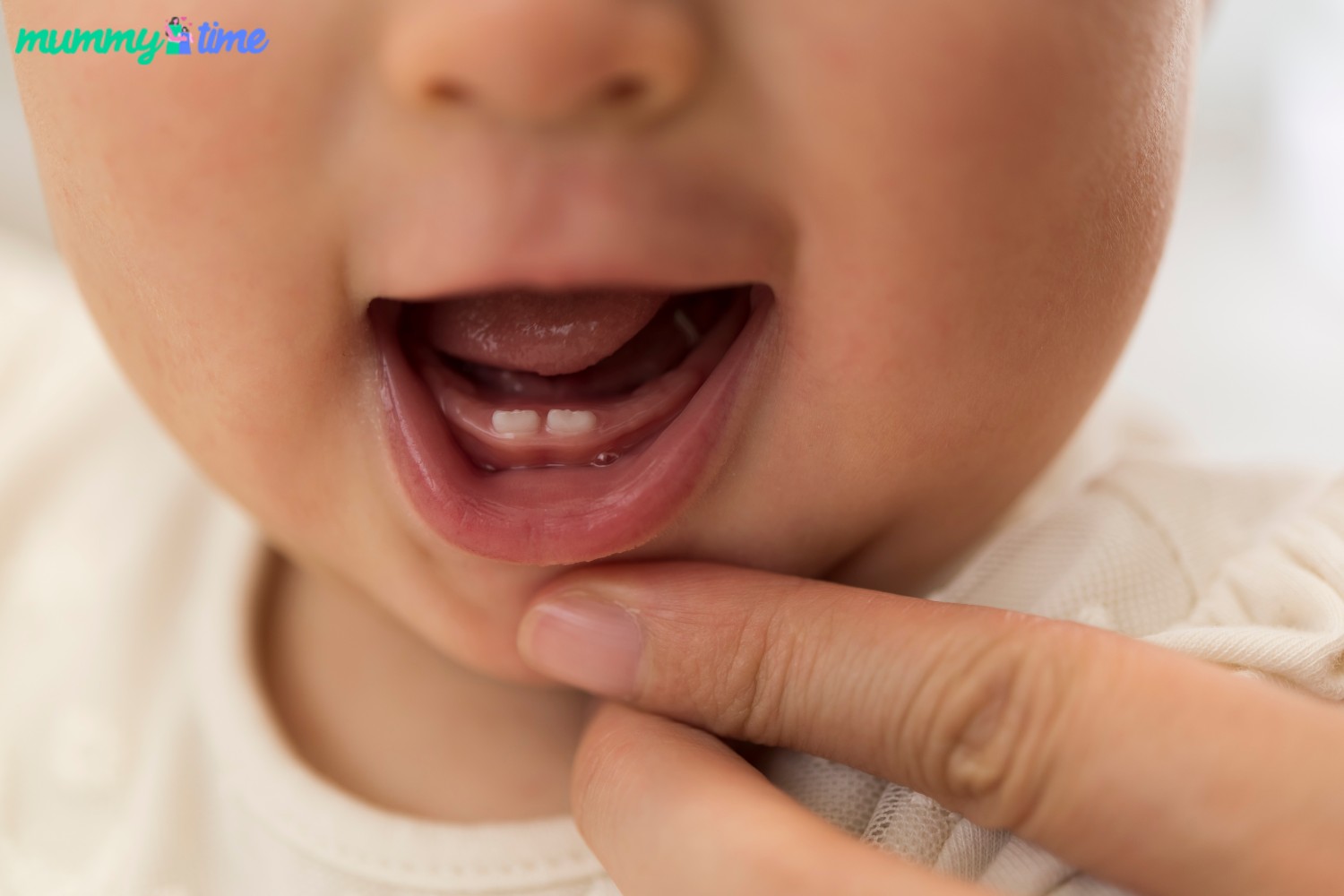
Common Causes Of Ear Infection
Since teething is not the reason why your little one is showing signs of an ear infection, it is natural to wonder what the causes of ear infections are. Below are the major culprits of ear infections in babies;
- It is possible that if ear infection is a genetic issue that runs in the family, your baby will be susceptible as well.
- Another common cause of ear infections in babies is cold. If your baby has recently had a cold, you should know that it is responsible for the ear infection, as a cold is well known to increase the chances of an ear infection developing.
- Organisms such as bacteria and viruses can also cause ear infections. If your baby comes in contact with any contaminated object or an infected person, then the chances of an ear infection are high. Although ear infections are not contagious, these invisible organisms can be transmitted from person to person.
- When babies are being bottle fed in an inappropriate position; laying down without properly elevating their head, this can cause an ear infection. The formula can enter and get stuck in their eustachian tubes thereby making it a good breeding place for bacteria.
Remedies For Ear Infection In Babies
The severity of the ear infection can determine if you can make it go away with some home remedies or consult with a doctor. However, in so many cases, the doctor would recommend that the parents or caregivers, allow the immune system to fight off the bacteria whilst still providing some external assistance. That said here are a few ways you can treat ear infections in babies;
- Apply a warm compress to your baby’s ear to ease the pain and discomfort they may be feeling due to the ear infection.
- Make sure to provide your baby with a lot of water, breast milk, or formula as this can help reduce the pressure and drain out their middle ear.
- Use homeopathic eardrops as they can help your baby relieve pain or inflammation. in the ear.
- Give your baby antibiotics prescribed by your doctor to help quickly combat any bacteria causing the infection. Make sure to follow the doctor’s instructions strictly.
- Always keep your baby’s head slightly elevated to ensure that there’s enough sinus drainage.
Make sure to contact your doctor immediately if your baby’s fever is between 38°C – 39°C or higher and when your baby’s ear discharges pus or bloody fluids.
How To Prevent Ear Infection In Babies
Sometimes ear infections are inevitable, especially in cases where it is genetic, however, there are lifestyles you can adopt that will help prevent your baby from getting ear infections and they are as follows;
- While bottle feeding your baby, always keep your baby in a half-upright position to prevent the fluid from getting to the back of their throat and eustachian tube.
- Breastfeeding your baby up until 6 months to 1 year can help keep ear infections at bay as breast milk contains a lot of antibodies that can keep the baby’s immune system strong and active.
- Keep your baby away from any form of smoke as exposure to secondhand smoke can cause ear infections to get worse and become more frequent than normal.
- Protect your baby from colds and cases of flu, and wear your baby socks as well as other appropriate clothing when it is cold or windy. Make sure to provide a safe and healthy environment for your baby.
- Be up to date with your baby’s vaccinations.
Wrapping Up
Although teething can cause babies to tug and scratch their ears, it does not cause ear infections. So it is best to be sure that your baby has an ear infection or simply showing the typical signs of teething. However, ear infections are very common in babies
Ear infections come with more severe symptoms than teething and can be caused by several factors such as cold, bacteria, improper bottle position, genes, etc
That said, parents and caregivers can provide babies with relief from pain and discomfort caused by ear infections by utilizing the remedies mentioned in this article.






